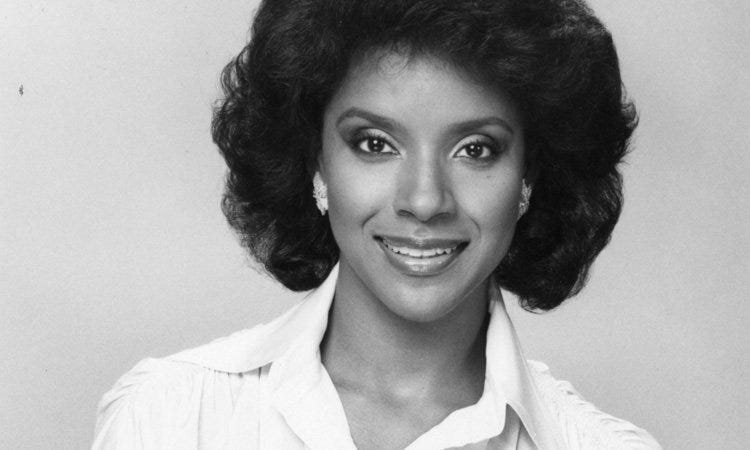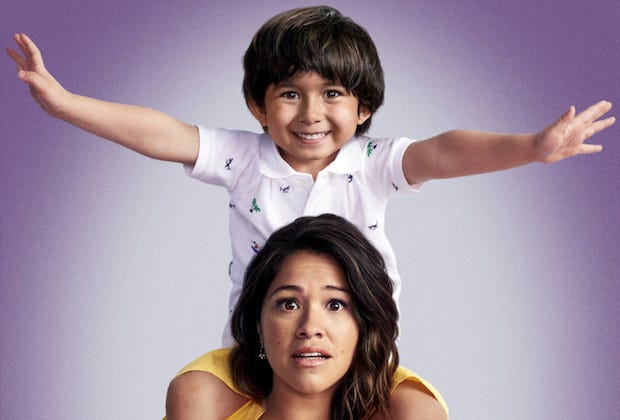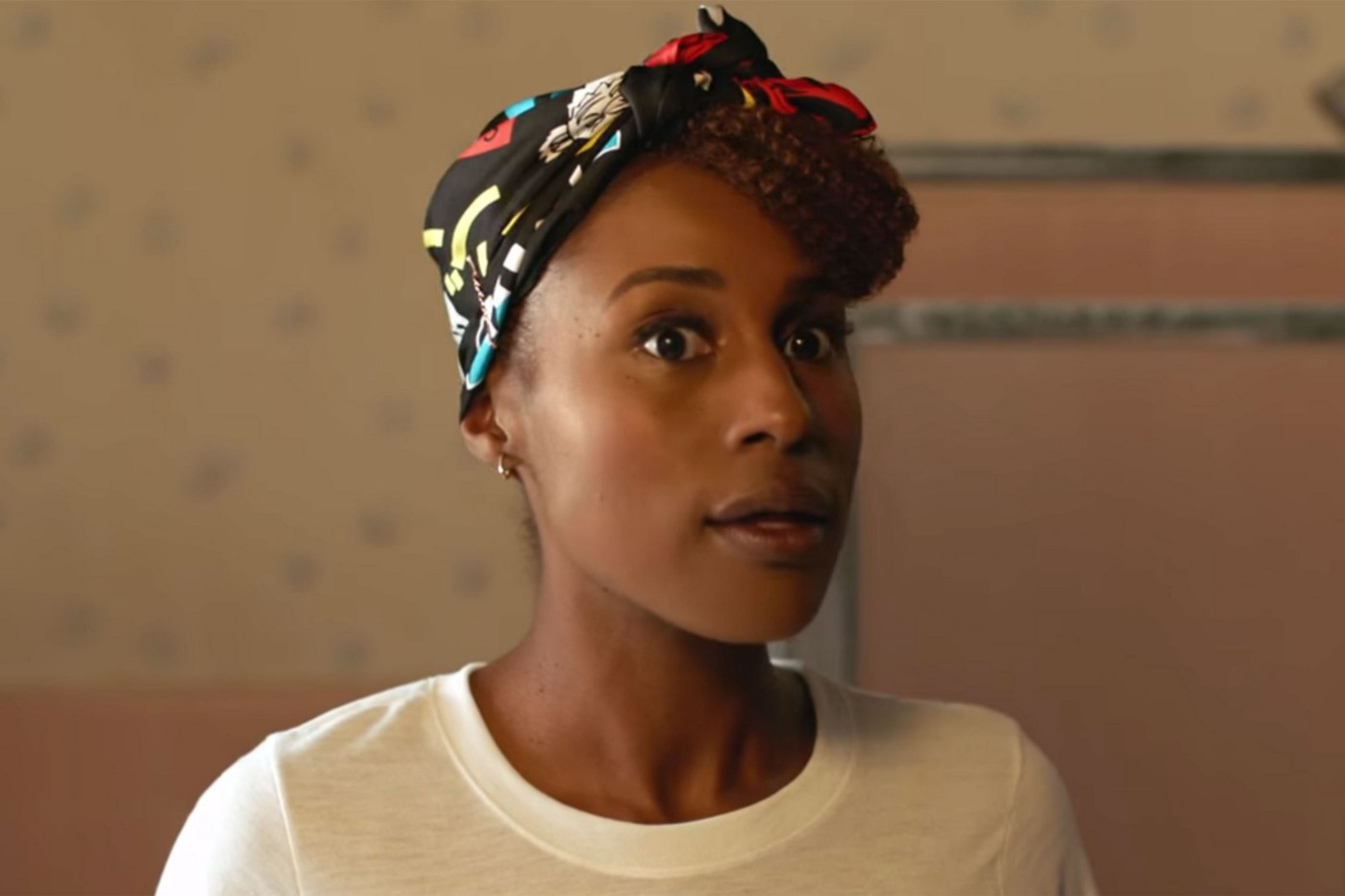Do You Love Who You’re Becoming?I ask myself. I imagine standing on stage, sharing the…
Where Is The Millennial Mom in Film & Television?
Ten years ago, the image of the young mom was that of the stay at home mom who caters solely to her household and children; or the mom who spent six weeks recovering from the war of childbirth before returning to work, spending hours of her day traveling to the bathroom to pump.
These days, the millennial mom is changing the narrative of motherhood. She is the mom who wakes up at 5 am to work in her home office, sends the kids to school around 8 am, works out, makes a smoothie and then sits in her chair once more to begin her day of creative work or entrepreneurship.
She’s the mom who home schools her two special needs children, updating her business website in between meals and lessons. She is also the mom who works a full day as a teacher, picks up her baby from childcare and then sneaks away at night to perform spoken word at an open mic show; chasing her dream of being a full time, world renowned poet.
She isn’t (only) the mom who walks around with ratty clothes on or the woman who has “let herself go” after a few months of motherhood (which, by the way, is a ridiculous phrase in itself considering how long it takes to recover from childbirth; but THAT is a conversation for another day).
The millennial mom is shopping, partying and traveling all while trying to find ways to balance the beauty of motherhood with the demands of a global desire to accomplish the heights her parents sacrificed for.
We see this woman on television right?
Negative. We don’t. If it’s not the mom who is being cheated on by her trifling husband, it’s the stay at home mom with no life that cries all the time. Or the working mother who is striving to be everything at her corporate job only to come home to a household that doesn’t appreciate her. These narratives on television are the stories of women all over the world, the problem is, there are about 16 million other women who have been left out of the scene, and personally, I’m tired of it.

For centuries, film has been our way of connecting to society. We relate to the stories told on screen and we relish in seeing ourselves in the pages of fictional stories. The story of motherhood is no different.
The twentieth century ushered in the suffrage movement, with women winning the right to vote. By the time the two-income household was commonplace, mothers were expected to play as big a part in society and the world as they did in their homes.
When I was young, we had shows like The Brady Bunch and The Cosby Show which gave two very contrasting portrayals of what it meant to be a mother. While Carol Brady was a stay at home mom who was far from a housewife; Clair Huxtable was a wife, lawyer, and mother of five children, who valued the importance of maintaining a successful career and strong household simultaneously. Shows like Blackish do a great job of showing realistic portrayals of women’s issues with episodes on post-partum depression and the like.
While all of these TV moms have careers, children, and a husband, we still rarely ever see them have a life of their own. What is it like to be a mom OUTSIDE of the house? Where are her friends? Where does she go when she isn’t with her family? Is she ever NOT with them?
In 2018, we’re beginning to see a new emergence of motherhood. The girls who grew up watching The Brady Bunch and The Cosby Show are now becoming mothers and they have a very different story to tell.
Millennial moms grew up as modern media emerged and therefore are very connected to it. We are older, more experienced, more mature, and savvier than ever before. We have college degrees, making us more informed than previous generations., and we value identity and third-wave feminism.
We don’t ask if we have to be a stay at home mom or a working mom; we ask “why do I have to be either one?”
For millennials, having children doesn’t define who we are or nullify our dreams and desires. We are defining what it’s like to do motherhood our way, as opposed to the way that worked for our mothers.

Enter Jane The Virgin, a television series created by Jennie Snyder Urman. I began watching Jane the Virgin as research for an essay and found myself completely hooked on the show. Jane the Virgin is the first and only show I’ve ever seen that touches on every single experience of the millennial mom.
In the show, Jane is a young Latina mother who gives voice to the millennial motherhood experience. After binge watching the second season, I almost screamed aloud when I watched the episode about sleep regression. Not because I didn’t know that sleep regression was a worldwide phenomenon, but because I had never before felt so understood and included while watching television. It shed light on the reality that though these things may seem small to everyone else, they were big events in my life and big enough to make it onto a television screen.
Sleep regression. Breast feeding. Lack of sleep. Budgeting. The trials of love and marriage; these are all things that all mothers go through no matter the situation. We often feel judged by others and let down by our friends and family. We have to balance the challenges of letting go of people and choosing ourselves over the opinions of others. Jane the Virgin highlights those struggles ever so beautifully, with humor and grace and, a lot of drama.
While watching this show, I can’t help but wonder why this show hasn’t been heavily marketed to millennial moms. This show is everything we experience and more. We relate to it on deep levels, but …are we watching it?
In Year of Yes, Shonda Rhimes talks about her desire to create characters that mirror the society we live in because at the end of the day, it’s about representation, connection and belonging. We all want to feel deeply and see ourselves in a world that seems too big to swallow at times. When people feel connected, represented and as if they belong, they stay tuned.
The recently canceled Carmichael show debuted a powerful scene of a mother trying to hold it together while on the brink of a mental breakdown. The scene sent me to tears, wishing I could jump through the TV and hug every mother in America. In an interview about the episode, Carmichael said “Television has been more afraid of giving [it’s audience the real] than they’ve been hesitant to receive it.”
So what is the problem? Has television intentionally ignored millions of millennial mothers? Is society blind to the reality that millennials are abandoning old trends and creating new normals? Or maybe, the problem is that industry professionals aren’t speaking to the right people — the right people being us, millennial moms.
We need media that shows us it’s OK to be a mom, have our own lives, run our own businesses and not suffer the consequence of a cheating husband and distant relationships with our children. To all the television networks and publishing houses out there, if stories are what you need, I have plenty.



